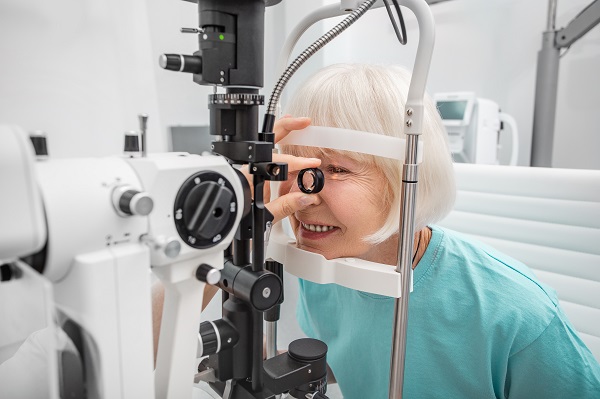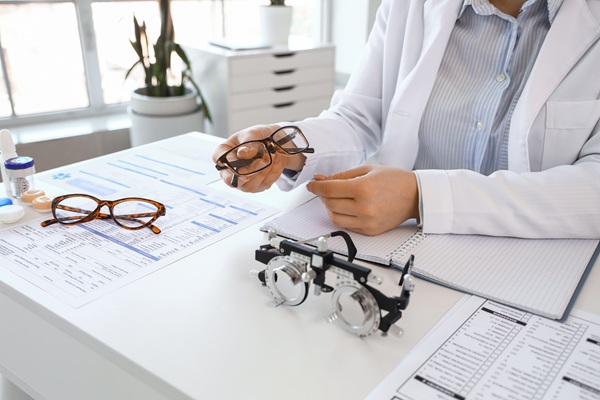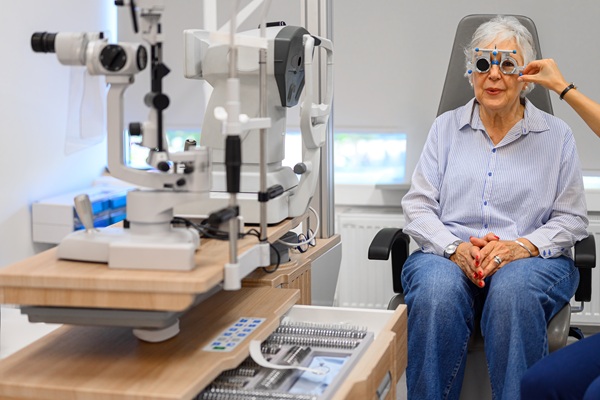Why a Routine Eye Exam is Important

A routine eye exam is an essential part of preventative healthcare. Several eye diseases and other vision-related issues present no symptoms until your eyesight gradually worsens. Eye exams help maintain and treat your eyes' health, preventing eye diseases from progressing to the point of intensive treatment or permanent vision loss.
The Importance of annual eye exams
Some people are unaware they are struggling with vision problems and do not think they need an optometrist to examine them. This lack of awareness can be due to discreet symptoms that do not cause interruption to everyday routine. However, when vision needs or issues are not caught and treated early, they can worsen and cause other health complications.
Routine eye exams can greatly contribute to a person's everyday health. The exam can help find and diagnose hormonal health issues, such as diabetes, hypothyroidism, and high blood pressure. Eye doctors can help patients diagnose and treat these conditions early and create specialized treatment plans to improve vision or help them adjust to living with the condition.
What a routine eye exam includes
There are several types of eye exams that an optometrist may do during a routine appointment. They will likely look for eye diseases, how the eyes work together, and the patient's overall health in accordance to or near their eyes. Some of these tests include:
- Visual acuity: Visual acuity evaluates how clearly each eye sees. An eye doctor will likely use a reading chart for this test.
- Keratometry: The eye doctor will shine a focused, circular light into the patient's cornea to evaluate its reflection and curvature. This test is often done to fit the patient for contact lenses.
- Refraction: This test determines the patient's lens power need and if they need accommodations for nearsightedness, farsightedness, and astigmatism. The optometrist may use drops to keep the eyes from changing focus.
- Preliminary test: A preliminary test may include evaluating depth perception and peripheral or side vision. It may also test eye muscle movements, signs of colorblindness, and how the patient's pupils react to light.
- Eye focusing: This test determines how the eyes focus, move, and work together to help the patient see and process information. It allows the eye doctor to see any issues that may prevent the patient's eyes from focusing and working together.
The Difference between an eye exam and a vision screening
Some may think that a standard vision screening and an eye exam are the same. However, a vision screening is typically a short assessment at a school, DMV, or a routine physical at the doctor's office. Screenings do not diagnose eye diseases but may indicate the need for further care. For example, if a child does poorly on a vision screening at school, they will be referred to an eye doctor for a more comprehensive eye exam.
The Ideal candidates for a routine eye exam
According to the CDC, an estimated 93 million adults in the United States are at increased risk for vision loss. However, only half of those individuals have visited an eye doctor in the past 12 months. Regular eye care is essential to preserving the vision of millions of Americans.
It is recommended that adults between 18 and 60 have a comprehensive eye exam at least every two years to maintain healthy vision. However, some adults are considered high-risk and should have a routine eye exam at least once a year. At-risk adults include those with the following:
- Prescribed eyeglasses or contact lenses
- Prescribed or over-the-counter medications that may have eye-related side effects
- A visually demanding or hazardous career (i.e., surgeon, firefighter, etc.)
- Previous eye injuries or eye surgery
In addition, those who have had refractive surgery, such as LASIK or SMILE, should visit their eye doctor every one to two years.
Children
It is recommended that children start having annual eye exams by the time they are six months old and then again by the time they are preschool age (3 to 5 years old). These exams can help diagnose common vision issues, such as amblyopia. Amblyopia is where a child has reduced vision due to a lack of communication between the eyes and the brain.
Patients with diabetes
People with diabetes should have a dilated eye exam once a year to prevent the development of diabetic retinopathy. This disease develops because high blood sugar often damages blood vessels in the retina and causes scarring, which can lead to permanent vision loss. Early detection and appropriate treatment can prevent or delay blindness in many patients with diabetes.
Glaucoma
Patients with a higher risk of glaucoma should also visit an eye doctor every two years. Glaucoma is an eye disease where the nerve that connects the eyes to the brain is damaged. At-risk individuals include African Americans 40 and older, all adults 60 and older (particularly Mexican Americans), and patients with a family history.
Schedule an eye exam today
A routine eye exam is a key part of preventative healthcare regardless of age or medical history. Do not delay visiting an optometrist until you have vision problems. Call our office to schedule an appointment.
To learn more about our services, visit https://brighteyesny.com or call our New Rochelle office at (914) 730-9574 to schedule an appointment.
Check out what others are saying about our services on Yelp: Eye Exam in New Rochelle, NY.
Recent Posts
An ophthalmologist visit becomes important when eye symptoms go beyond routine vision changes and signal disease, injury, or sudden shifts that need medical or surgical eye care. An ophthalmologist is a physician who diagnoses and treats eye conditions and performs eye surgery when needed.Many people search "optometrist" when they mean ophthalmologist, and the term often…
Cataract treatment can help you regain clearer vision and improved daily functioning. Professional care from an experienced optometrist offers benefits that can improve your long-term eye health and overall quality of life. The following guide outlines the three major benefits of cataract treatment provided by a trusted, experienced optometrist.During regular appointments with an optometrist, they…
Prescription glasses are an important part of clear vision and eye health. However, if you break or damage your glasses, it is important to act quickly to avoid further problems and restore your sight. Fortunately, taking care of damaged prescription glasses as soon as possible can save you time, money, and discomfort.The first step after…
Dry eye may start with mild irritation, but over time, it can begin to interfere with focus, comfort, and even quality of life. An optometrist can help when this condition becomes more than just a temporary annoyance. There are many potential causes of dry eye, including hormonal changes and seasonal allergies. With tools that reveal…


